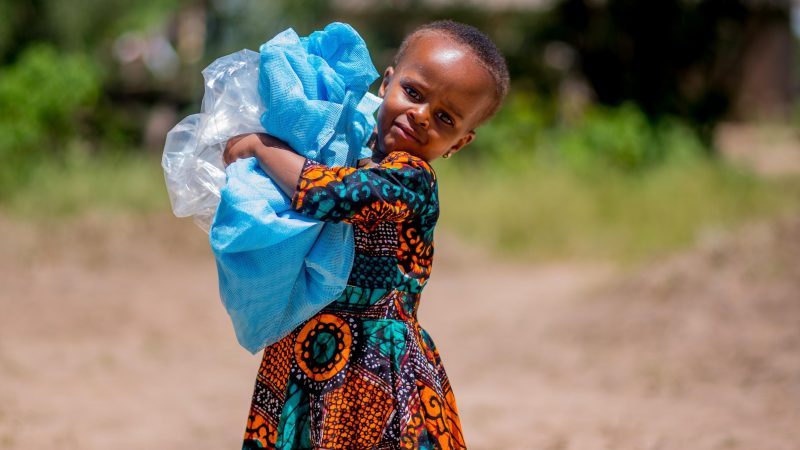
I recently joined a delegation to Tanzania and Zanzibar where we visited maternal medical clinics run by some incredible staff and heard how the highest number of deaths in childbirth in that region are related to malaria. It was an important reminder of the vital impact of UK overseas aid, and of the danger of reductions in funding that have recently impacted programmes that support everything from education and global health, to humanitarian needs. In almost every area we have seen cuts, there has been a disproportionate impact on women and girls.
International aid cuts have a disproportionate impact on women and girls
Funding for sexual and reproductive health and rights programming (SRHR), which overwhelmingly supports women was cut by a third between 2019 and 2022. This is just one example of how government decisions taken in the UK affect women and girls globally, which I have seen throughout my time in parliament.
Identifying that these cuts need reversing is, however, just the first step. Attention must now turn to how we do so.
Britain has a proud history of working closely with multilateral organisations, which are established by three or more nations working together to overcome a common global issue. Indeed, the last Labour government showed great leadership in founding organisations like The Global Fund to fight AIDS, Tuberculosis and Malaria, which has since helped us to make progress against some of the deadliest global diseases.
Decisions made in Britain have impacts around the world
Take malaria, for instance, a disease that still claims the life of a child every minute. Both Gavi, the Vaccine Alliance and The Global Fund play key roles in tackling malaria through a variety of programmes focused on treatment and prevention. Through this work though they not only save lives – overwhelmingly those of children and pregnant women – but also address key barriers limiting women’s potential in endemic countries.
In many families, when someone gets sick with malaria, the care burden will usually fall on the women and girls of the family. They will take time away from work and school, potentially days or weeks, to look after their family. For young girls, missing school days will impede their likelihood of completing school and getting a good education. This will then affect their ability to enter and remain in the workforce or be involved in political or community decisions that affect them.
For women, taking time off work can be detrimental to household income and to their ability to pursue a career. At a time when the family is already having to spend money on malaria treatments, losing out on earning money can push the family further towards – or into – poverty. Families where the women are the main earners will be especially hit.
Malaria has health but also economic impacts
These setbacks then create a vicious cycle which undermines global health goals. Families pushed into poverty are at greater risk of malaria, which further impacts women, further embeds poverty and further risks the lives of children and their mothers. It is estimated that over a third of all pregnancies across the WHO Africa region were exposed to malaria infection in 2022, resulting in devastating impacts such as low birth weight.
Yet research has shown that in some countries the likelihood of children catching malaria decreases by 56% if their mother has a secondary education. There are clear benefits to ensuring women and girls receive an education unimpeded by diseases like malaria, both unlocking their potential and keeping children safer from the threat of malaria.
Even though many multilaterals make commitments to gender equality, and we can be confident their work is supporting women and girls around the world, the current UK government has failed to correctly value multilateral aid as a part of Britain’s development work.
Britain has failed to step up to the task – but it can re-prioritise
This was made especially clear in 2022 when, even though the pandemic had placed additional stresses on health systems globally, Britain failed to step up and meet the Global Fund’s replenishment ask. Labour cannot afford to make the same mistake.
In just over five years, it will be 2030 – the year we are meant to achieve the Sustainable Development Goals. The next UK Government will take us almost up to that point and will be the last government that can ensure we make meaningful progress towards them. The Government must reestablish itself as a trusted member of the global team and work in partnership to keep the world safer, by ending diseases like malaria.
Labour is right to prioritise women and girls in Labour’s development but in the next few years, we must do more than just undo damage – we must strive for progress towards the achievement of our global goals. This must include necessary support for partners that share our visions and ambitions, and working with multilateral organisations to tackle the global challenges that continue to reinforce gender inequality.
Through the aid cuts of the last few years the UK has failed women and girls around the world. We cannot afford to fail them any longer.




More from LabourList
‘Labour won’t stop the far right by changing leaders — only by proving what the left can deliver’
‘Cutting Welsh university funding would be economic vandalism, not reform’
Sadiq Khan signals he will stand for a fourth term as London Mayor